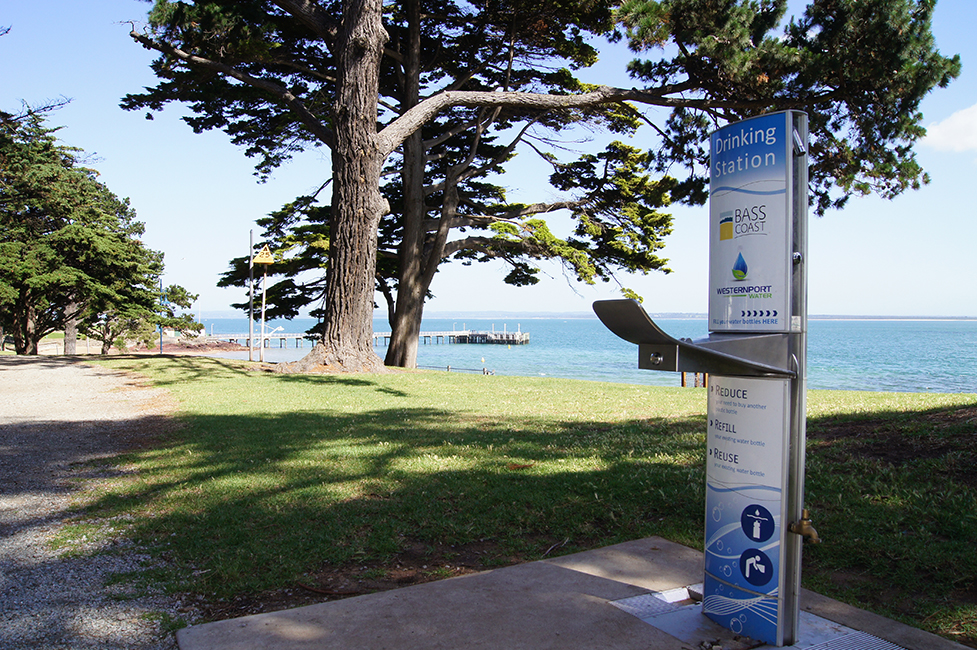Local governments providing the public with an alternative water source to disposable plastic bottles
Linda Mathieson
April 1, 2015
The ACT Government has recently undertaken to install 30 aquafil water refill stations across Canberra in an effort to encourage the local community to carry reusable bottles and refill rather than purchase sugary drinks and plastic disposable bottles of water. This is a progressive initiative that will help encourage and build a healthy lifestyle for Canberrans whilst reducing the amount of plastic waste going to landfill. This will also have a positive impact on the cost of recycling waste from public areas around the city.
The water refill stations are due to be installed by July 2015 and provide a refreshing alternative to the old style outdoor water taps and bubblers. The aquafil water stations are bright, modern, and sleek and easily stand out in public areas attracting passers-by with an enticing clean, fresh water refill. The units are manufactured in Australia and are robust and able to endure harsh weather conditions.
The water refill stations will be rolled out in 2 stages with the first 10 fountains to be installed at sportsgrounds around Canberra. The second stage will see 20 fountains installed in popular public areas that were chosen as a result of a vote by over 600 people during a community consultation in 2014. Some of these sites include, Mount Ainslie lookout, Wooden Tower Square, Weston Park and Bunda Street in the city.
Water is an important aspect when it comes to good health. Drinking an adequate supply of water daily is crucial to helping your body function properly but clean drinking water is not always available. This is a problem in both developed and developing countries with people buying individual plastic bottles or jugs of potable water to ensure their drinking water is safe and readily available.
In developed countries the purchasing of plastic bottled water is on the rise and this is taking its toll on the environment with vast amounts of plastic waste ending up in landfill, waterways and oceans. This is an environmental hazard with plastic bottles taking hundreds of years to biodegrade and it is time for local communities to come together and say ‘NO’ to the disposable plastic bottle.
There is no doubt that local communities can help promote sustainability by encouraging the public to refill reusable bottles as an alternative to purchasing bottled water.


